Can Cats Eat Canola Oil? Does It Benefit Cats
This vegetable oil is produced from the seed of any of the several cultivars in the Brassicaceae plant family, which are edible and industrial varieties are also found.
The Canola Council of Canada claims that canola oil may also be used to produce biodiesel. Its seeds are used to enhance the fertility of the soil. Canola oil is recognized as safe for human consumption due to its low saturated fat concentration, high monounsaturated fat content, and about 2:1 monounsaturated to polyunsaturated fat ratio. Canola oil is used for frying foods. As this is a vegetable oil, it lowers the risk of heart disease.
Can Cats Eat Canola Oil? Cats can consume canola oil, but it is not recommended because no concrete evidence has been available proving they are beneficial or completely safe to consume.
Despite its advantages, its high quantity is not suitable for pet animals. This article will help explain if canola oil is advantageous for cats and whether it is safe for them to ingest it.
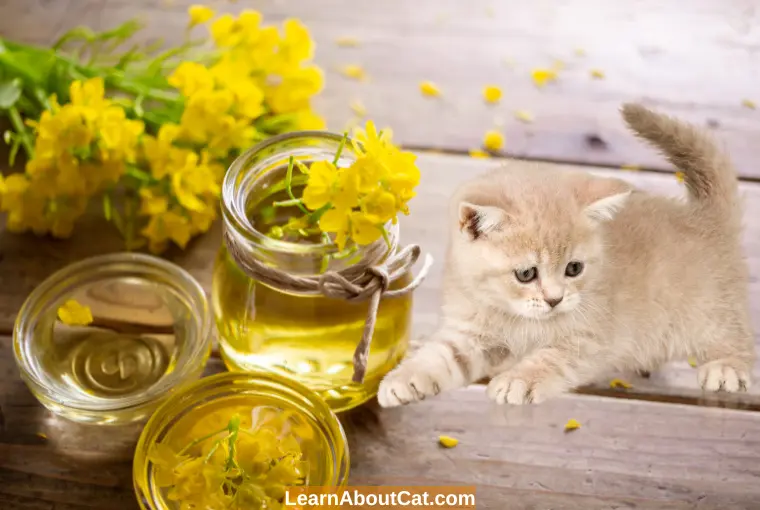
What Is Canola Oil?
Canola oil is the abbreviation for Canadian + Oil + Low Acid. It has a high smoke point, several culinary applications, and other qualities that could or might not be advantageous. Various expert arguments exist for and against including canola oil in people’s and cats’ diets.
Cats may consume canola oil. However, it is advised against giving it to youngsters because there is no proof that it would benefit them or be entirely safe.
Is canola oil toxic to cats?
Its moderate quantity is not harmful to cats. Canola oil has been related to lung cancer, growth retardation, abnormal platelets, vitamin E deficiency, and fibrotic heart diseases, as canola oil comes from a trustworthy organic source because of its high omega-3 and omega-6 levels.
Can Cats Eat Canola Oil?
The answer to this question is yes. Because canola oil contains mono and polyunsaturated fatty acids, several animal experts say that canola oil in pet diets inhibits arrhythmias, lowers blood pressure and cholesterol level, and reduces body fat composition. Despite all health aspects, canola oil still has minor problems with felines.
A variation of the plant with a dosage low enough for humans was created because the original canola plant is hazardous and causes heart problems. This plant’s harmful content is substantially lower in this form. People are unlikely to be harmed by it because of the low concentration, but what about your cat, who is weaker than humans?
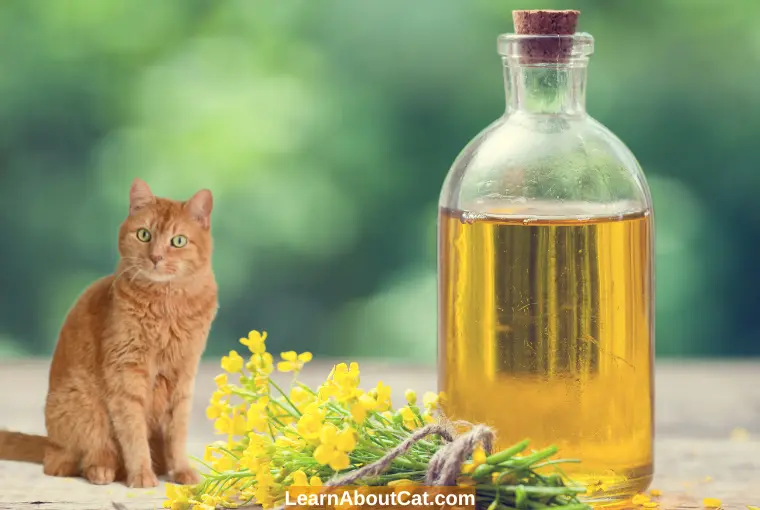
Do Cats Like Canola Oil?
Your cat’s personality will determine whether it likes canola oil because every cat is different, and not all cats do. You must always provide your cat food they enjoy eating in addition to what you believe is best for their health, as you are aware. Even though most cats will lick olive oil anytime they have the chance, if you feed your cat other fats, they might not enjoy them. The type of oil will determine whether or not cats like it.
Will Canola Oil Hurt Cats?
Canola oil has not been proven harmful to cats. Thus the answer is no. For the time being, it is best to avoid using canola oil in your cat’s food because there isn’t a study available that conclusively shows that it is perfect for cats, rather than putting it in your cat’s food on the off chance that it won’t harm the cat and waiting to see. It is advisable to wait for more convincing evidence that canola oil is safe before including it in your cat’s food.
It is safe for both animals as well human beings. Both experimental animals and humans have shown their nutritional worth and safety, and regulatory and health organizations are from worldwide.
Is Canola Oil Beneficial For Cats?
No, because no concrete evidence suggests that canola oil benefits cats.
In recent years, there have been many controversies surrounding Canola oil and its use in pets, especially cats and dogs.
Considering that no scientific research has been done to demonstrate that cats can eat – drink Canola oil, it is safe to assume that it would have some negative effects on your cat.
There are a lot of healthy organic oils that can replace Canola oil, including Avocado oil and coconut oil.
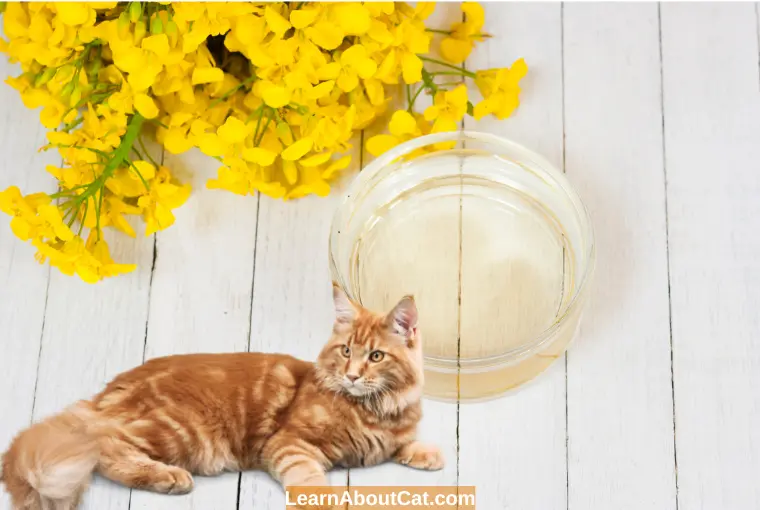
What Type of Cooking Oil Is Safe For Cats?
Coconut oil is a safe choice for cats and dogs because it won’t change the fatty acids in their diet as medium Chain Triglycerides are present in it, which enhance normal cognitive performance and overall energy levels. It also contains relatively little omega-3 or omega-6 fatty acids.
What Oil Can I Add To My Cats Food?
EPA and DOA are crucial fatty acids found in fish oil. In fish oil, this group of acids is prevalent.
- Cod liver oil is a rich vitamin source.
- Hemp oil on hair to hydrate it.
- Flaxseed oil includes omega-3 fatty acids.
- Krill oil is a good source of fats.
- Seed oil from a sunflower.
- Fish Oil is packed with fatty acids, including eicosapentaenoic acid (EPA) and docosahexaenoic acid (DHA)
- Coconut oil
Frequently Asked Questions
Is diffusing essential oils safe for cats?
Several studies have demonstrated that Inhaling essential oils can be toxic to cats, regardless of whether the oil is consumed internally, applied topically, or inhaled. There is a possibility that exposure will cause liver damage, liver failure, respiratory failure, seizures, and even death if severe enough.
Is canola oil really toxic?
Canola oil has no risks to your health. Since canola oil is produced from the plant’s seeds, the Food and Drug Administration considers it safe.
Wrap Up!
In conclusion, even though cats may consume canola oil, it is preferable to avoid giving it to your cat because there is little evidence to support its health benefits.
Therefore, it is preferable to protect your cat than to rely on trial and error, which might be harmful to your cat. It is ideal if more natural oils are secure.
Who is Isabella?
My name is Isabella, and I am a dedicated and knowledgeable cat enthusiast. With years of experience caring for cats and a deep love for felines, I made a mission to help other cat lovers navigate the challenges of cat ownership.

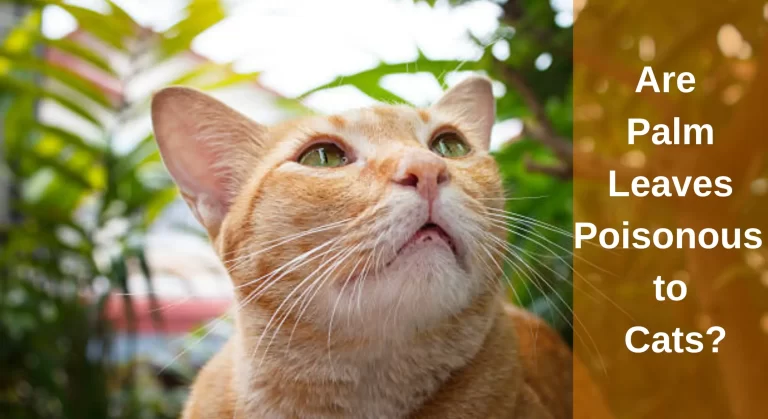
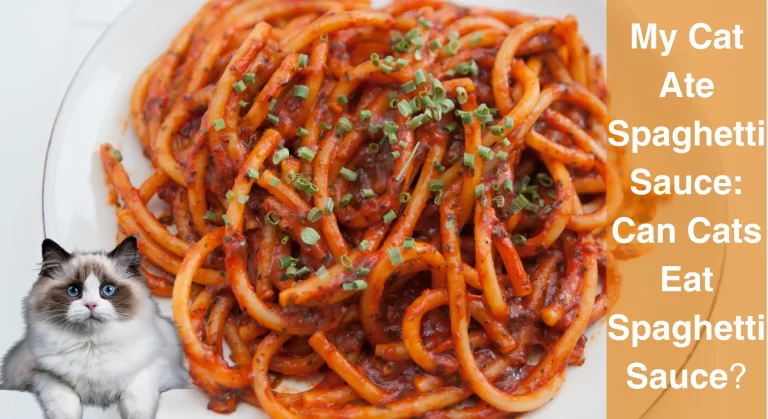
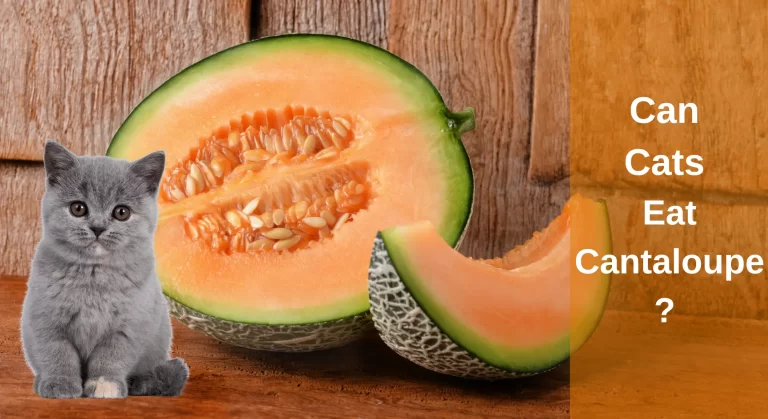
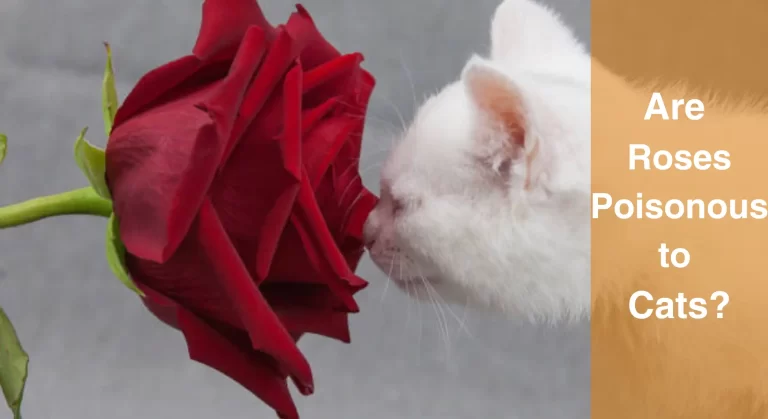
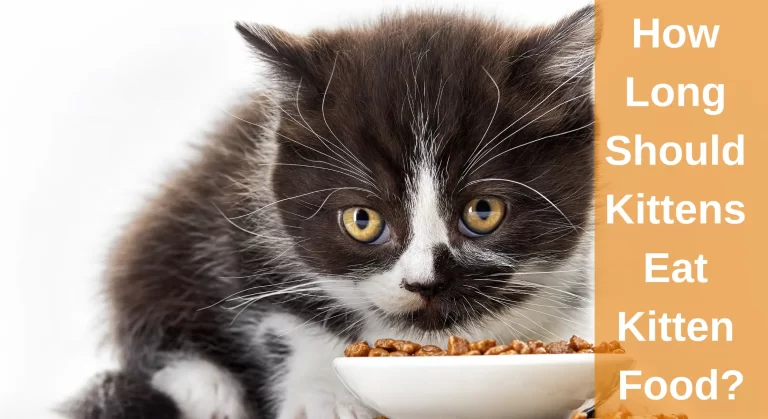
![Can I Feed My Cat Chicken Every Day? [Answerd]](https://learnaboutcat.com/wp-content/uploads/2022/11/Can-I-Feed-My-Cat-Chicken-Every-Day-768x419.webp)